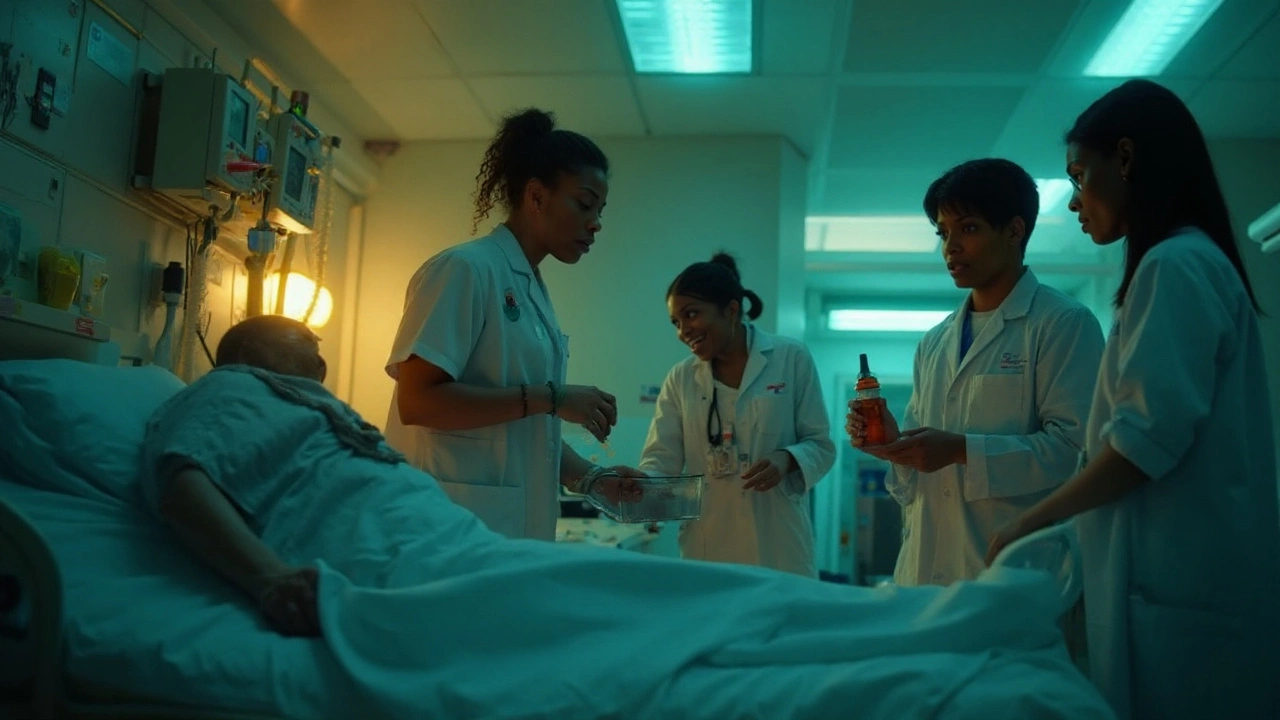Digoxin Overdose: What Happens and How to React Fast
Digoxin is a heart medication that helps the heart beat stronger and more regularly. It’s great when used correctly, but too much can turn dangerous fast. If you or someone you love is on digoxin, knowing the red flags and quick actions can save a life.
Common Signs of Digoxin Overdose
Too much digoxin shows up in the body in a few predictable ways. The first thing people notice is a change in heart rhythm. You might feel a fluttering chest, a racing pulse, or a slow, irregular beat. These are called arrhythmias and they’re the biggest warning sign.
Other symptoms pop up quickly, too. Nausea, vomiting, and loss of appetite are common early clues. Some folks also get blurry vision or see a yellow‑green halo around lights – that’s a classic digoxin‑related visual change.
Headaches, dizziness, and confusion can follow, especially in older adults. If you notice someone acting unusually sleepy, disoriented, or having trouble speaking, treat it as a possible overdose until a doctor can evaluate.
Immediate Steps and Treatment Options
If you suspect digoxin toxicity, call emergency services right away. While waiting, gather information: the dose taken, time of ingestion, and any other medicines being used. This helps the medical team decide the best course of action.
In the hospital, doctors will check blood levels of digoxin and run an ECG to see how the heart is reacting. If the level is high, the main antidote is called Digibind (digoxin‑specific antibody fragments). It binds to the excess drug and helps clear it from the bloodstream.
Supportive care is also key. This may include IV fluids, medications to correct abnormal heart rhythms, or potassium supplements if the blood potassium is low (low potassium makes digoxin toxicity worse). Never try to “play doctor” at home; the dosage of antidotes and other interventions must be managed by professionals.
After the crisis is handled, the next step is prevention. Always take digoxin exactly as prescribed. If you have kidney problems, are on diuretics, or take other heart meds, talk to your doctor about adjusting the dose. Regular blood tests to monitor digoxin levels can catch problems before they become serious.
For caregivers, keep a list of all medications near the phone and make sure the patient’s pharmacy and doctor are aware of any changes. Simple steps like using a pill organizer and setting daily reminders can reduce the risk of accidental over‑dose.
Remember, digoxin can be a life‑saving drug, but it walks a thin line. Knowing the signs, acting fast, and staying on top of dosing can keep you and your loved ones safe.
Digoxin Overdose: Prevention, Early Signs, and Evidence-Based Treatment
Clear, practical guide to prevent, recognize, and treat digoxin toxicity. Includes red flags, step-by-step care, Fab dosing, and safety checklists.
